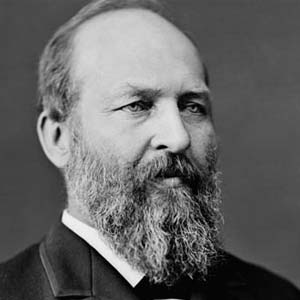James Oppenheim (1882-1932), was an American poet, novelist, and editor.
A lay analyst and early follower of C. G. Jung, Oppenheim was also the founder and editor of The Seven Arts, an important early 20th-century literary magazine. Oppenheim depicted labor troubles with Fabian and suffragist themes in his novel, The Nine-Tenths (1911) and in his famous poem Bread and Roses (1911). The slogan Bread and Roses is now commonly associated with the pivotal 1912 textile workers’ strike in Lawrence, Massachusetts. The poem was later set to music in 1976 by Mimi Fariña and again in 1990 by John Denver.
Oppenheim was born in St. Paul, Minnesota, on May 24, 1882, the son of Joseph and Matilda (Schloss) Oppenheim. He studied at Columbia University. Oppenheim married Lucy Seckel and had two children, Ralph and James Jr. (alias Garrett)
Oppenheim was assistant head worker at the Hudson Guild Settlement in New York from 1901-03. He then worked as a teacher and acting superintendent at the Hebrew Technical School For Girls in New York from 1905-07.
Oppenheim’s published works include Pay Envelopes (1911); The Nine-Tenths(1911); The Olympian (1912); Idle Wives (1914); Songs For The New Age (1914); The Beloved (1915); War and Laughter (1916); The Book Of Self (1917); The Solitary (1919); The Mystic Warrior (1921); Golden Bird (1923); The Sea (collected poetry – 1924); Behind Your Front (1926); and American Types: A Preface To Analytic Psychology (1931). Additionally, he contributed short stories, articles, and poems to American Magazine, American Mercury, Century, Collier’s, Freeman, Harper’s, Hearst’s, New Republic, and The Thinker. Oppenheim served as the editor for The Seven Arts magazine, where he worked with Waldo Frank, George Jean Nathan, Louis Untermeyer and Paul Rosenfeld from 1916-17, until he was blacklisted due to his opposition to US entry into World War I. Oppenheim died in New York City on August 4, 1932.


10 thoughts on “Kaminos”
Was Nicholas related to Alexander Saslavsky who married Celeste Izolee Todd?
Anyone have a contact email for Yair Klinger or link to score for Ha-Bayta?
wish to have homeland concert video played on the big screen throughout North America.
can organize here in Santa Barbara California.
contacts for this needed and any ideas or suggestions welcomed.
Nat farber is my great grandpa 😊
Are there any movies or photos of max kletter? His wife’s sister was my stepmother, so I’m interested in seeing them and sharing them with his wife’s daughter.
The article says Sheb recorded his last song just 4 days before he died, but does not tell us the name of it. I be curious what it was. I’d like to hear it.
Would anyone happen to know where I can find a copy of the sheet music for a Gil Aldema Choral (SATB) arrangement for Naomi Shemer’s “Sheleg Al Iri”. (Snow on my Village)?
Joseph Smith
Kol Ram Community Choir, NYC
שלום שמעון!
לא שכחתי אותך. עזבתי את ישראל בפברואר 1998 כדי להביא את בני האוטיסט לקבל את העזרה המקצועית שלא הייתה קיימת אז בישראל. זה סיפור מאוד עצוב וטרגי, אבל אני הייתי היחיד עם ביצים שהביא אותו והייתי הורה יחיד בשבילו במשך חמישה חודשים. הוא היה אז בן 9. כעת הוא בן 36 ומתפקד באופן עצמאי. נתתי לו הזדמנות לעתיד נורמלי. בטח, אבות כולם חרא, אומרים הפמינציות, אבל כולם צריכים לעבוד כמטרות במטווחי רובה!
משה קונג
(Maurice King)
Thank you for this wonderful remembrance of Herman Zalis. My late father, Henry Wahrman, was one of his students. Note the correct spelling of his name for future reference. Thank you again for sharing this.
Tirza Wahrman (Mitlak)
amazing zchuso yagein aleinu, he wrote the famous niggun Lefichuch that is sung in almost every Israeli Yeshiva